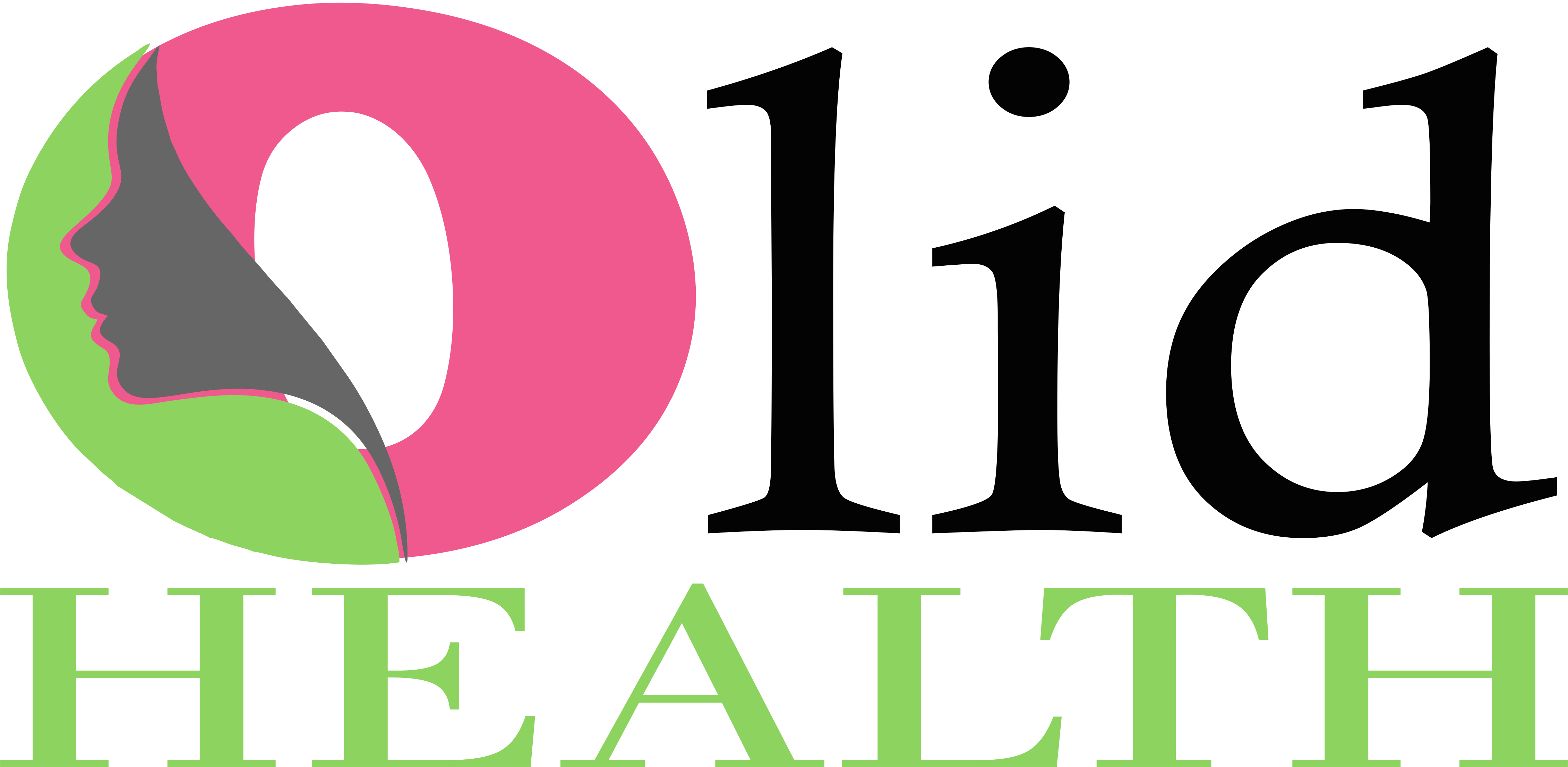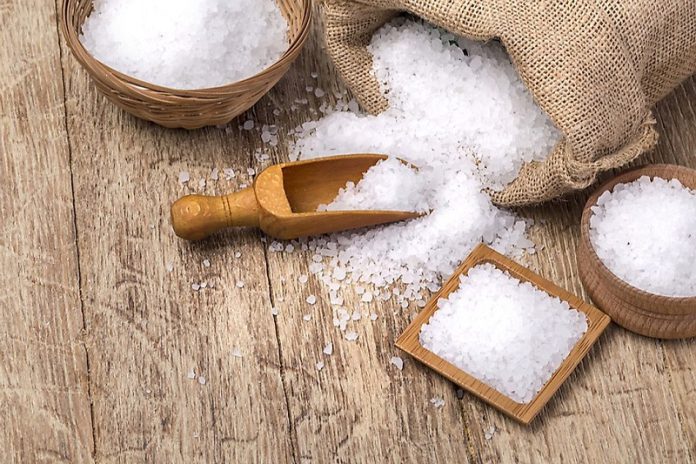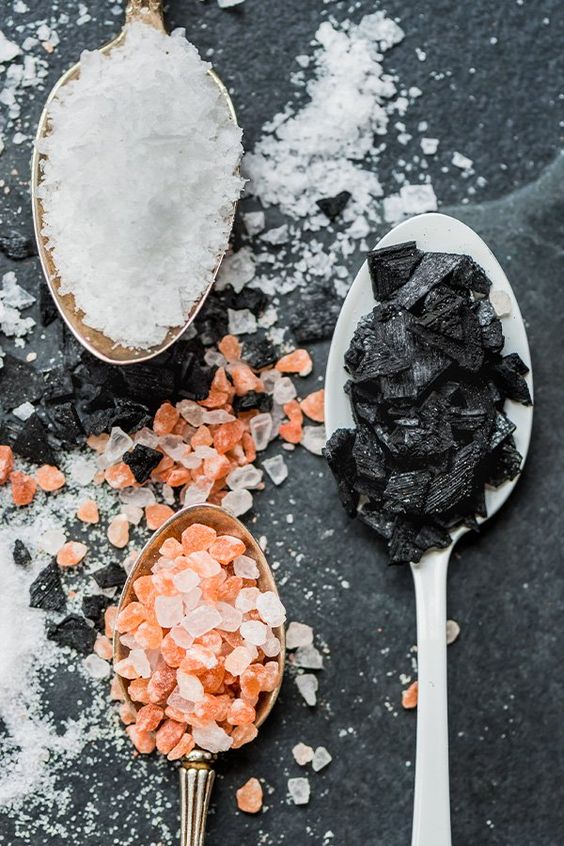olidhealth.com – Normally, People know minerals as solid inorganic rocks with various chemical elements in them. However, those minerals also exist in our bodies and circulate with specific purposes in our cells. It doesn’t mean we have to eat stones to maintain a healthy body but we just take a small number of minerals. You should have essential minerals to maintain your body because vital organs like the skin, liver, and heart need this. Some minerals also exist in the production of essential amino acids.
Obtaining these minerals is not difficult. Organic food and fortified food have these elements and can be consumed on daily basis. The amount of minerals in the body depends on their benefits to keep the body in optimal condition. A mineral deficiency causes many problems in the future such as chronic disease or even heart disease. So we should keep balancing it.
This article shows you many kinds of essential mineral you should know, including how important it is and how to get them.
What is an essential mineral?
There are two kinds of minerals that can be distinguished by their need in our body. First is macromineral which has a larger amount in the body, and micromineral which has a smaller proportion. Both of them have their benefit to help maintain the body. In this article, we focused on essential minerals in macromineral.
Why it should be consumed?
You should have essential minerals to keep your body healthy. These minerals have a function as same as vitamins and they cooperate to maintain body health. Minerals are present in the metabolism system, blood circulating system, and immune system. It’s important to have essential minerals because the body can’t produce them. It needs to take external resources for maintaining your body. For example resources such as vegetables, fruits, nuts, seeds, or dietary supplements.
A side effect of having less amount of mineral
You should take care of your body with a sufficient amount of minerals. Lack of some minerals in your body has some effect on your body. Mineral deficiency can be caused by consuming food that has fewer minerals. People with dysfunctional metabolism systems also have a mineral deficiency. A disease that can occur if have mineral deficiency such as dehydration, increase high blood pressure, or even decrease brain function.
There are essential minerals that should have to keep your body healthy.
Calcium
Calcium is one of the abundant minerals in the body that has been used to strengthen bones. It also can improve blood vessels and muscles. Calcium reserves are usually stored in bones and teeth. If your body has a deficiency of iron, stored calcium in bones can be released to help it. Studies suggest that calcium may have properties to reduce the risk of high blood pressure, diabetes, and cancer [1].
There are high of calcium foods such as:
- Diary product (milk, cheese, and yogurt)
- Seafood (fish, shrimp, clams, and trout)
- Green leafy vegetables (broccoli, kale, and collard green)
- Fortified food (canned sardine, fortified juice, and fortified cereal)
Be cautious about consuming spinach as it can complicate calcium metabolism. Although it is a green vegetable, it has a compound that can reduce the absorption rate of calcium.
Calcium deficiency can reduce bone density lead to osteoporosis. Elder people usually take fortified food with calcium to prevent it. However, it’s not helped at all because the metabolism system in older people has decreased. A wise option to this matter is taking regular calcium at a young age. Too much calcium in dietary supplements also can form kidney stones and cardiovascular disease such as arrhythmias (irregular heartbeat), Congenital heart disease, even heart failure [1].
Phosphorus
Phosphorus is an essential mineral that can be used to maintain the bone’s health. Most phosphorus is stored in bone and cooperates with calcium to strengthen the bone [2]. Its also help blood vessel and muscle health. Phosphorus can help your body process sugar and carbohydrate also contribute to help maintain heartbeat and the nervous system.
Phosphorus can be found in:
- Meat (chicken, turkey, pork)
- Seafood (cuttlefish, squid, octopus, and salmon)
- Seeds and legumes (pumpkin seeds, squash seed, tempeh/fermented soybean)
- Grain (rice, wheat, and oatmeal)
- Diary product (milk, yogurt, and cheese)
- Fortified food
People with alcohol use disorder and diabetes are more susceptible to phosphorus deficiency. Symptoms of phosphorus deficiency such as numbness, weakness, fragile bone, fatigue, and even irregular breathing.
You can take phosphorus supplements for medicinal purposes. However, a High dose of phosphorus supplements can cause dizziness, nausea, headaches, and vomiting. Consuming phosphorus also has a side effect if you have chronic kidney disease [2]. Excess phosphorus can’t leave the kidney and crystallize becomes kidney stones.
Magnesium
Magnesium is a mineral and one of the electrolytes that have many benefit for your health. It is used to maintain blood sugar levels and blood pressure and help enhance bone tissue and reduce the risk of osteoporosis, protein, and DNA [3]. It also contributes to controlling the nervous system and regulating muscle function. Studies suggest that intake of magnesium may lower the risk of developing diabetes because magnesium can break down blood sugar. Magnesium is available as a dietary supplement and for specific medical purposes.
Magnesium can be found in natural food or fortified food such as:
- Grains (whole-wheat, barley, oatmeal, brown rice)
- Nuts (pistachios, almond, brazil nut, and cashews)
- Seeds (pumpkin seeds, squash seeds, hemp seeds, and flax seeds)
- Legumes (lima beans, soybean, peas, chickpeas, and beans)
- Diary product (milk, cheese, yogurt)
- Green vegetables (spinach, kale, mustard green, collard green)
- Fruits (dried fig, bananas, avocado, guava, and kiwi)
Lack of magnesium in your body can cause fatigue, vomiting, feel weakness, nausea, and loss of appetite. In severe cases, it can cause muscle cramps, tingling, numbness, irregular heartbeat, or even personality change. If you feel dehydrated is also indicated to be magnesium deficiency.
It doesn’t have side effects if consumed above the limit. However, a high intake of magnesium supplements can cause nausea, diarrhea, even lead to abnormal heart rhythm. High doses of magnesium supplements must have a doctor’s prescription for specific medical conditions.
Sodium
Sodium is one of macromineral and electrolytes. It has been used to keep the nerve and muscle functioning properly. Sodium is an electrolyte that has been used to balance body fluid (amount of water inside and outside body cells) to its optimal state. It also contributes to maintaining blood pressure and protecting damaged cells caused by free radical scavengers [4].
Sodium is usually combined with chloride as table salt called sodium chloride. Another resource of sodium in organic food or fortified food such as:
- Fruits (apple, guava, papaya, avocado, banana, watermelon, and pineapple)
- Vegetables (tomato, celery, mushroom, beet, carrot, cabbage, and broccoli)
- Meat (canned and salted meat and poultry)
- Seafood (fish, crab, scallop, shrimp, clam, and mussel)
- Dairy products (milk, yogurt, and cheese)
Dehydration is a sign that the body doesn’t have enough fluid or is low in electrolytes. Hyponatremia is a symptom that the body lack sodium such as nausea, poor balance, headaches, and hard to think properly. In the worse case, it can lead to diarrhea, diuretics, or even liver and heart failure [4].
Although you can take sodium as a dietary supplement, too much consume sodium have less benefit in your body. A high concentration of sodium in the blood is called hypernatremia. It can cause weakness, loss of appetite, and a strong desire to drink water. In a serious case, it leads to kidney diseases like forming kidney stones or kidney failure.
Potassium
Potassium is an electrolyte and one of the essential minerals that help to manage cell, nerve, and muscle systems. It also can maintain blood pressure, help to control heart rhythm, and contribute to the digestion system [5]. Potassium derivatives such as potassium citrate can treat people who have kidney stones. These essential minerals have benefits for your body. If necessary, you can take a dietary supplement for medical purposes.
Potassium can be found in organic food such as:
- Vegetables (sweet potatoes, potatoes, tomatoes, cooked spinach, and carrot)
- Fruits (banana, orange, grape, and berries)
- Dried fruits (raisins, prunes, or dates)
- Legumes (cooked black beans, lima bean, kidney bean, soybean, and pinto bean)
- Dairy products (yogurt, cheese, and milk)
Potassium deficiency can cause dehydration and hypokalemia. Mild symptom hypokalemia such as weakness and feeling tired. In serious cases, it can cause abnormal heart rhythm which leads to cardiac arrest.
Too many consume potassium supplements can cause hyperkalemia. Normally, hyperkalemia doesn’t cause symptoms, but in worse cases can cause weakness and muscle pain. Excess potassium which enters the bloodstream can damage your heart and cause a heart attack. In another case, too much potassium can lead to hypertension.
Chlorine
Chlorine is a common mineral that has many benefits for maintaining a healthy body. It contributes to helping the production of hydrochloric acid on the stomach to help break down foods [6]. Chlorine is an electrolyte to balances fluid inside and outside cells in the body. It also helps maintain blood pressure, volume, and acidity in the bloodstream.
Chlorine is usually found in table salt with sodium as seasoning food. Other resource food with rich of chloride such as:
- Vegetables (tomato, lettuce, carrot, and spinach)
- Fruits and dried fruits (plum, coconut, olive, and dates)
- Seafood (prawns, fish, and seaweed)
- Nuts (walnut, hazelnut, and almond)
- Fortified food (all processed food with salt as preserved agent)
It’s a rare case to see people with a lack of chlorine because most people should have chlorine in their meals. If people with heavy sweating or imbalance body fluid, it can cause dehydration. Low concentration electrolyte in the body is a symptom if you have chlorine deficiency. Another case of chlorine deficiency is people with hypochloremia. It can cause heavy breathing, fever, confusion, and inflammation.
If too much chlorine in your body can lead to hyperchloremia. It can affect increasing blood pressure or hypertension. Excess chlorine which can’t be removed by the kidney will build up and form kidney stones. It also can be affected people with congestive cirrhosis and increase the risk of heart disease.
Sulfur
Sulfur is present in amino acids like methionine and cysteine. It’s also an essential mineral that has contributed to building and fixing your DNA [7]. It also helps the metabolism system to break down food and improve skin and ligament health.
Below are foods that contain high of sulfur such as:
- Spices (garlic, onion, scallion, shallot, and leek)
- Meat (chicken, turkey, fish, beef, and eggs)
- Nuts, seeds, and legumes (chickpeas, walnut, kidney beans, lentils, and peas)
- Grain (oat and wheat)
- Green vegetables (cabbage, kale, broccoli, asparagus, and cauliflower)
- Fortified food
Elder people likely have less sulfur consumption than young people. Various reasons like forgetting to consume sulfur-based foods or decreasing the metabolism system to absorb sulfur can also contribute to sulfur deficiency. Lack of Sulfur in your body can cause various problems such as arthritis, acne, rash and redness in the skin, slow regeneration cell, depression, or even memory loss.
Sulfur is safe if used externally for skin or hair. However, oral consumption with supplements should have a doctor’s prescription first. Uncontrolled intake can cause dizziness, headaches, or nausea. It also leads to intestinal diseases such as inflammatory bowel disease, diarrhea, or ulcerative colitis.
In Addition to micromineral
Micromineral is also an essential mineral that has a small proportion in the human body such as iron, manganese, copper, iodine, zinc, cobalt, fluoride, selenium, etc. They’re used to help maintain the body in a specific way. Some people with a certain condition can also lack micromineral. However, it can be treated by medication or remedies. In the next article, we want to describe how important micromineral is in our body, including an explanation of each mineral, its benefits, and how to get it.
Reference
[1] https://www.ncbi.nlm.nih.gov/pmc/articles/PMC6683260/ – The benefit of calcium
[2] https://www.ncbi.nlm.nih.gov/pmc/articles/PMC4642415/ – Phosphorus overview
[3] https://www.ncbi.nlm.nih.gov/pmc/articles/PMC5926493/ – Role of magnesium in the body
[4] https://www.ncbi.nlm.nih.gov/pmc/articles/PMC7318881/ – Sodium in general
[5] https://www.ncbi.nlm.nih.gov/pmc/articles/PMC3650509/ – benefit of potassium
[6] https://www.researchgate.net/publication/336532964 – Chlorinated water benefit
[7] https://www.ncbi.nlm.nih.gov/pmc/articles/PMC7503525/ – Plant-based sulfur that has a benefit for health










